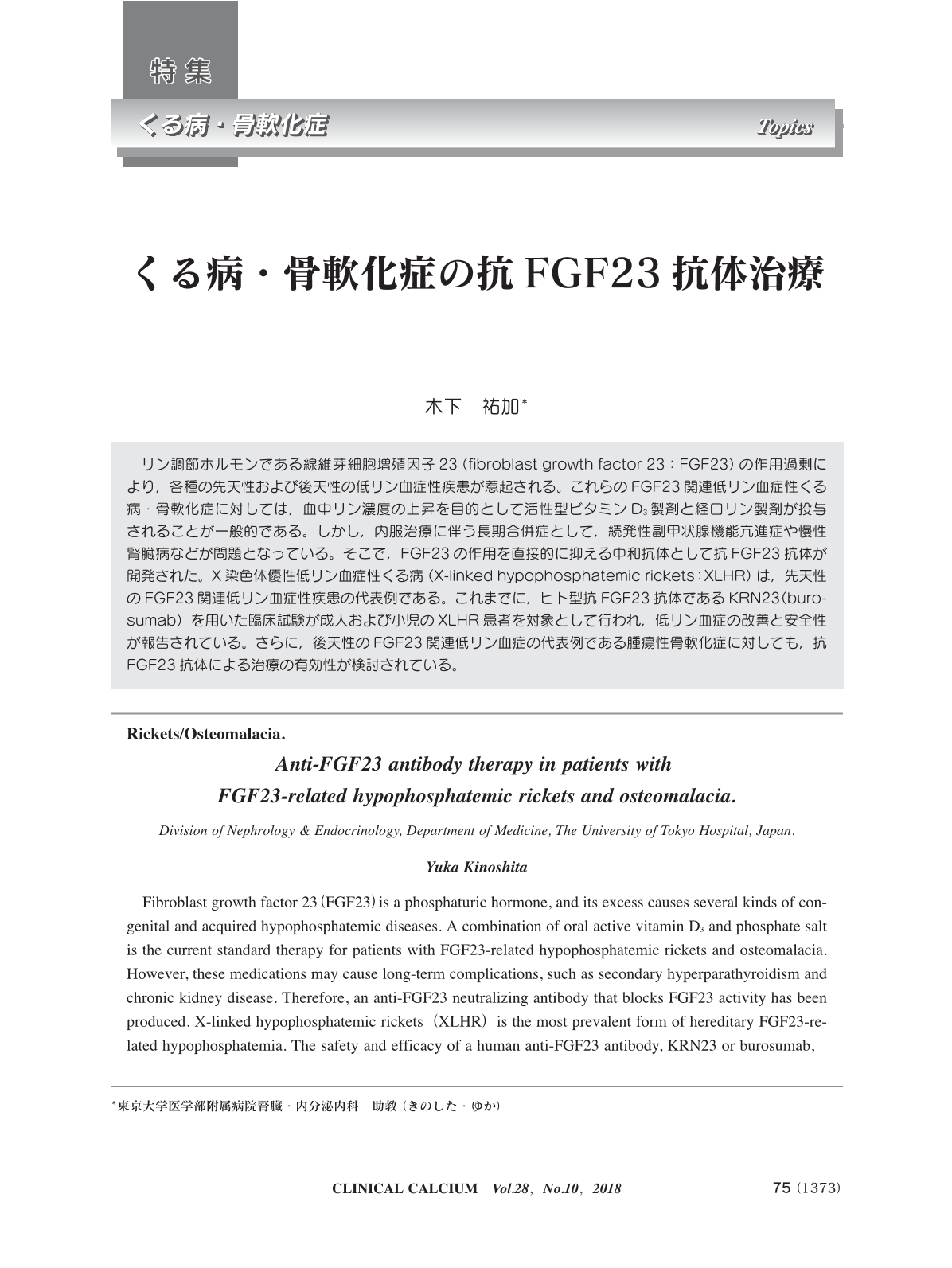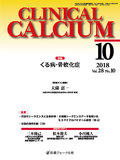Japanese
English
- 有料閲覧
- Abstract 文献概要
- 1ページ目 Look Inside
- 参考文献 Reference
リン調節ホルモンである線維芽細胞増殖因子23(fibroblast growth factor 23:FGF23)の作用過剰により,各種の先天性および後天性の低リン血症性疾患が惹起される。これらのFGF23関連低リン血症性くる病・骨軟化症に対しては,血中リン濃度の上昇を目的として活性型ビタミンD3製剤と経口リン製剤が投与されることが一般的である。しかし,内服治療に伴う長期合併症として,続発性副甲状腺機能亢進症や慢性腎臓病などが問題となっている。そこで,FGF23の作用を直接的に抑える中和抗体として抗FGF23抗体が開発された。X染色体優性低リン血症性くる病(X-linked hypophosphatemic rickets:XLHR)は,先天性のFGF23関連低リン血症性疾患の代表例である。これまでに,ヒト型抗FGF23抗体であるKRN23(burosumab)を用いた臨床試験が成人および小児のXLHR患者を対象として行われ,低リン血症の改善と安全性が報告されている。さらに,後天性のFGF23関連低リン血症の代表例である腫瘍性骨軟化症に対しても,抗FGF23抗体による治療の有効性が検討されている。
Fibroblast growth factor 23(FGF23)is a phosphaturic hormone, and its excess causes several kinds of congenital and acquired hypophosphatemic diseases. A combination of oral active vitamin D3 and phosphate salt is the current standard therapy for patients with FGF23-related hypophosphatemic rickets and osteomalacia. However, these medications may cause long-term complications, such as secondary hyperparathyroidism and chronic kidney disease. Therefore, an anti-FGF23 neutralizing antibody that blocks FGF23 activity has been produced. X-linked hypophosphatemic rickets(XLHR)is the most prevalent form of hereditary FGF23-related hypophosphatemia. The safety and efficacy of a human anti-FGF23 antibody, KRN23 or burosumab, has been confirmed in adults and children with XLHR. Moreover, Burosumab is being tested as a potential treatment for patients with tumor-induced osteomalacia(TIO), which is the most prevalent form of acquired FGF23-related hypophosphatemia.



